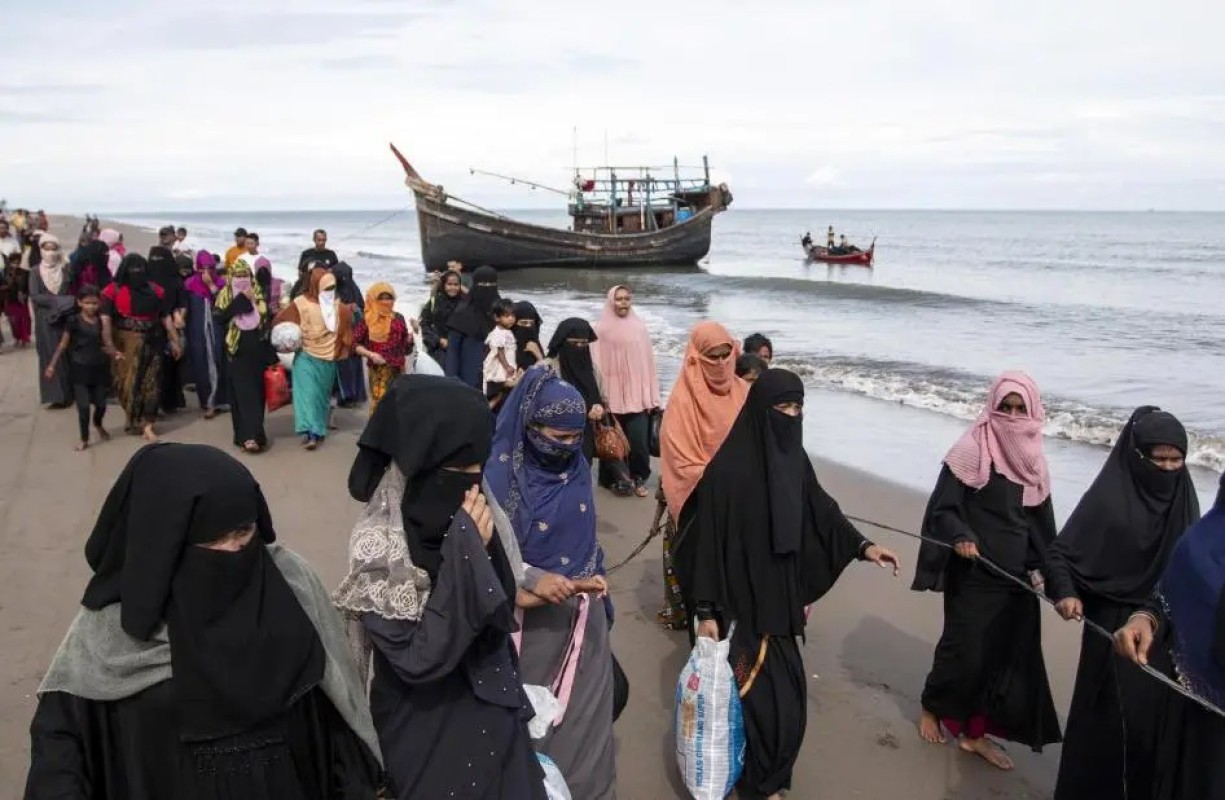In the face of rising illegal immigration, national security must come first

447

Phyo Lin Aung (NP News) - Dec 18
The term "immigrants" refers to people who move from one country to another with the hope of improving their lives. Immigration has become a significant trend in recent times, as many countries face instability, conflict, and economic difficulties. For example, some countries are experiencing war, which forces people to flee their homes in search of safety and better opportunities. Additionally, certain countries are severely overpopulated, leading to high population densities, which strain resources and living conditions. These issues not only affect the countries in question but also have a ripple effect on neighbouring nations, which may experience an influx of immigrants seeking refuge or better prospects.
Myanmar has experienced such impacts, particularly with the influx of Bengalis from the neighbouring country of Bangladesh. Although they originally came from Bangladesh and belong to the Bengali group, many of them claim to have been born in Myanmar and argue that they have lived in the country for generations. This has led to debates over citizenship and belonging, as some see them as migrants while others view them as long-standing residents of Myanmar. The situation has contributed to tensions regarding national identity, immigration, and the status of ethnic minorities in the region.
Myanmar officially recognizes 135 ethnic groups, and the Bengalis are not included in this list. The claim of the Bengalis as a distinct ethnic group is not recognized by the Myanmar government, which asserts that they are migrants from Bangladesh and not indigenous to Myanmar. This stance has been a point of contention on the international stage. While Myanmar maintains this position, many Western countries and international organizations support the recognition of the Bengalis as an ethnic group and advocate for their rights.
Every time Western countries advocate for the Bengalis, their argument is often based on human rights and liberal principles. However, in the past, they have frequently neglected the actions of extremist Bengali armed groups, failing to recognize that these groups' actions pose a threat to human rights and reflect a form of terrorism. These groups have been involved in violent attacks against local ethnic communities, forcing them to flee their homes. Additionally, these armed groups have attacked military camps and Border Guard Forces (BGF), contributing to a sense of insecurity. The international community's focus on human rights has often been at odds with the security concerns raised by these acts of violence.
While Western countries often overlook the terrorist acts committed by Bengali extremist groups, they actively support efforts to submit arrest warrant against Myanmar’s leaders in the International Criminal Court (ICC). This position appears unbalanced and questionable, as it fails to take into account the security concerns and the context in which these actions occur. The focus on prosecuting Myanmar's leadership for alleged human rights violations without fully addressing the local ground situation undermines a comprehensive understanding of the issue. The inconsistency in these positions raises concerns about the impartiality and fairness of international interventions, as it seems to prioritize certain narratives while neglecting others.
When Western countries face similar immigration issues, their responses are often clear and decisive, with little regard for human rights in some cases. In recent days, the 2024 elected U.S. President Donald Trump’s mass deportation plan for illegal immigrants became prominent and widely discussed. No country criticized or blamed the United States for that plan. Additionally, the U.S. has long implemented strict policies toward immigrants, particularly those from Mexico, including building fences along the border and aggressively deporting undocumented immigrants. These actions highlight a contrast in the way immigration issues are handled by Western countries when compared to their stance on Myanmar, raising questions about consistency and fairness in addressing immigration and human rights concerns globally.
The west countries also have no effective solutions for the growing number of immigrants. Recently, I read a news report stating that "Muhammad" has become the most popular name given to baby boys in the UK. This shift from traditionally Christian names to Islamic names reflects the increasing influx of immigrants, and highlights how their culture and religion are beginning to influence and shape British society. This trend underscores a broader issue: the balance between welcoming newcomers and preserving the country's national identity. It is crucial for all countries to carefully navigate this kind of situation, taking into account national security concerns and the preservation of its traditional culture, ethnicity, and religion.
Thus, certain liberal ideas may not be well-suited to addressing the complex issues facing modern societies. In an era where national security and identity are increasingly under threat, it is sometimes necessary to prioritize nationalism. Protecting national interests and preserving cultural identity may require decisions that go against the grain of international criticism or global trends. While some may argue for more inclusive or globalist policies, it is essential for nations to focus on solutions that best serve their own citizens and address the unique challenges they face. In the end, defending core values and ensuring the safety of the nation should be the primary concern, even if it means standing firm against external pressure or condemnation.